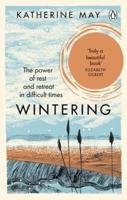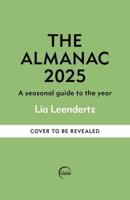Publisher's Synopsis
The fourth of Candida Lawrence's stand-alone
memoirs, the collection of pieces that is Vanishing
reveals a life-long awareness of human fragility and
the constant proximity of alienation and separation.
A survivor in the truest sense and a woman with
the greatest personal resilience, Candida Lawrence
recalls what it is to make each day an assertion of
independence. Her deeply felt remembrances
always grant us an honest account of what it is
to live in this unstable world. And the pieces that
make up Vanishing are no exception.
Vanishing opens with Lawrence's childhood distrust
of men's use of words and an assertion that she
will ever write only truth. By the second piece in
this volume it comes clear that there is no subject
she will not address with an eloquent, understated
honesty that reveals her heart and her mind and
her constant resistance to expectation. By the end
of this volume what comes clearest is her sense
that modernity has separated us from the most real
emotions and the most sensible attachments.
As always, Lawrence's writing is filled with smart,
gentle anger, sweet sadness, and the most private
sense of what is vital and important.
To read this memoir is not only to know a remarkable
woman; reading all of Lawrence is to see the world
through eyes that are unblinking over sixty five
years.
memoirs, the collection of pieces that is Vanishing
reveals a life-long awareness of human fragility and
the constant proximity of alienation and separation.
A survivor in the truest sense and a woman with
the greatest personal resilience, Candida Lawrence
recalls what it is to make each day an assertion of
independence. Her deeply felt remembrances
always grant us an honest account of what it is
to live in this unstable world. And the pieces that
make up Vanishing are no exception.
Vanishing opens with Lawrence's childhood distrust
of men's use of words and an assertion that she
will ever write only truth. By the second piece in
this volume it comes clear that there is no subject
she will not address with an eloquent, understated
honesty that reveals her heart and her mind and
her constant resistance to expectation. By the end
of this volume what comes clearest is her sense
that modernity has separated us from the most real
emotions and the most sensible attachments.
As always, Lawrence's writing is filled with smart,
gentle anger, sweet sadness, and the most private
sense of what is vital and important.
To read this memoir is not only to know a remarkable
woman; reading all of Lawrence is to see the world
through eyes that are unblinking over sixty five
years.










